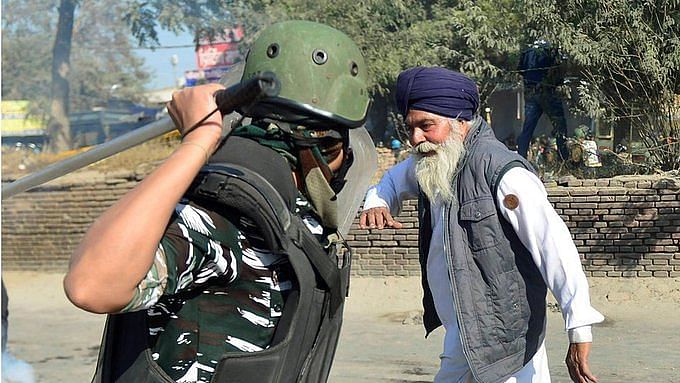India is a federation of states, or should it be called a union of states? The Constitution-makers made the Centre more powerful. Tamil Nadu Chief Minister MK Stalin prefers to call it ‘union government’. The Bharatiya Janata Party, which seems to believe that India came into being on May 26, 2014, is using the extra-strong Centre to forward the BJP’s agenda, the Sangh parivaar’s blueprint, for India, without the states putting spokes in the Centre’s wheel.
Those who think Narendra Modi takes major decisions only after he has taken the states into confidence, listened to chief ministers etc are nothing but naive. Remember demonetization? It caught everybody, including chief ministers, by surprise. Demonetization delivered a deathblow to crores of aspirations. It orphaned hundreds of schemes and programmes of the states. It virtually brought state governments to a standstill. So much for federalism!
If India under Narendra Modi is a federation of states, then the man must be a deity because only deities have the power to dictate everything with “my way or the highway” edicts. Some of Narendra Modi’s decisions have been downright authoritarian. The abrogation of Article 370 is a classic example, which came out of the blue and in the fashion and impact of demonetization.
Next, the coronavirus pandemic. Covid-19 left the states completely at the mercy of the Central government. Covid-19 did not understand federalism. It went where people took it to. But governments were culpable. And in India, the Central government calls the shots. In fact, the decision to lockdown India was taken by the Modi Government. On March 24, 2020, Narendra Modi himself announced a national lockdown in a television address. If he spoke to the chief ministers of all the states before taking the decision, it was not heard in the din of the banging thaalis. The complete negation of the federal nature of the Indian Union was on display.
Again, like demonetization, the abrupt lockdown left everyone unprepared, the states the most. Migrant workers and small businesses suffered the most.Fact is, by the time the second Covid wave hit, everything about Covid-management appeared to be controlled by the Centre, from providing oxygen to assuring steady supplies of essential medications. The states and the people at large were left to fend for themselves. This wasn’t the federalism envisaged by BR Ambedkar and others who were instrumental in drafting our Constitution.
True, India has a federal structure like the United States, Australia and Canada. But the Modi Government’s omissions and commissions, not to speak of its intentions, have put paid to the vision of the founding fathers of the Constitution of India. The federal structure they chose was one to ensure diversity in unity. A “centralised federalism” that largely stood the test of time. The system in which governments at both national and state levels functioned in their respective jurisdictions.
On the whole the system lasted. But it’s wilting these days. The Indian ‘federation’ is called the “holding together” federation — there are two tiers of government: at the national, and the state levels. Except that the Union government has more powers. And those bigger powers are coming in handy to today's rulers to ride roughshod over the aspirations of the states. The benefits of the states having powers greater than the
Centre are many. Most of all, the checks and balances ingrained in a truly federal system ensures that the Centre doesn't get so powerful that it leads to a concentration of power in the hands of a few, or one!


























































































